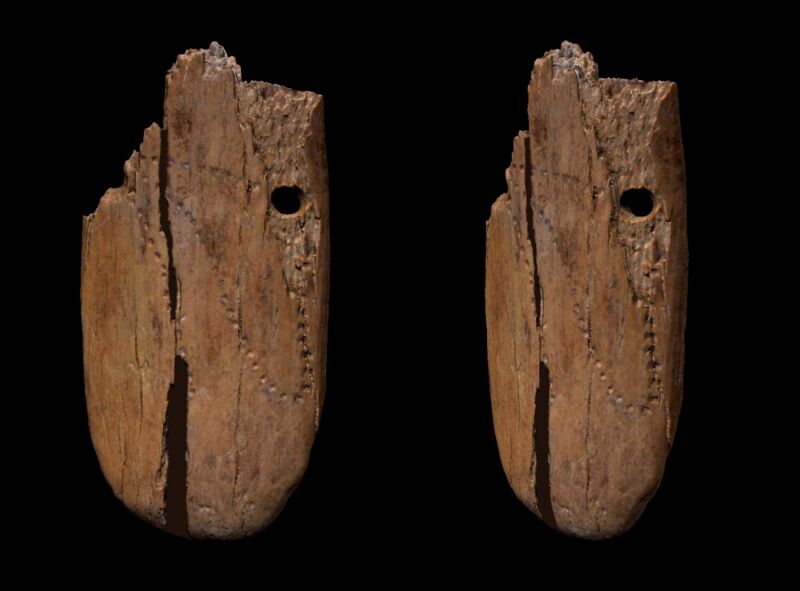
Enlarge (credit: Talamo et al. 2021)
While our species was spreading across Eurasia and briefly sharing a continent with the last of the Neanderthals, someone took the time to carefully shape an oval pendant out of mammoth ivory, then decorated it with a looping dotted line. The pendant, unearthed at Stajnia Cave in Poland, was recently radiocarbon dated to around 41,500 years old. That makes it the oldest known example of a Paleolithic fashion that reached from France to Siberia between 42,000 and 30,000 years ago.
An ancient ivory pendant
Archaeologists excavating the cave found the ivory pendant broken into two pieces. When reassembled, the fragments form most of an oval, with one end still broken and missing. About 50 puncture marks dot its surface, forming a sharply curved, looping shape. The pendant’s edges are smooth and rounded, and although its surface is cracked and weathered after tens of thousands of years in the ground, it’s easy to see that it must once have been an elaborate, lovely piece of jewelry—or, as archaeologists say, “portable art.”
Today, we have no way to know what the dotted curving lines on the mammoth ivory pendant meant to the people who made and wore the object. Those details are lost to us, but University of Bologna paleoanthropologist Sahra Talamo and her colleagues suggest hunting tallies or notations about the passing of lunar phases or cycles.
Read 15 remaining paragraphs | Comments
